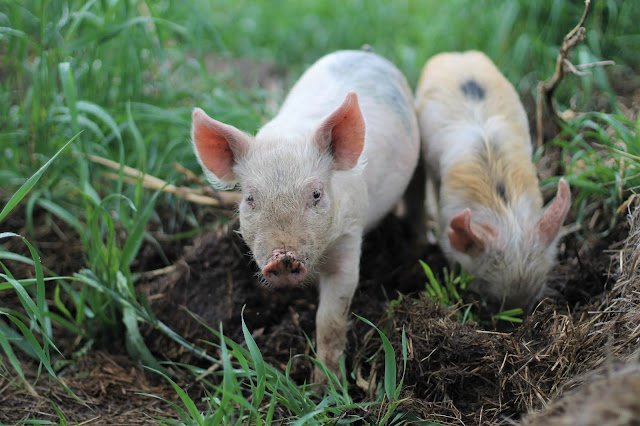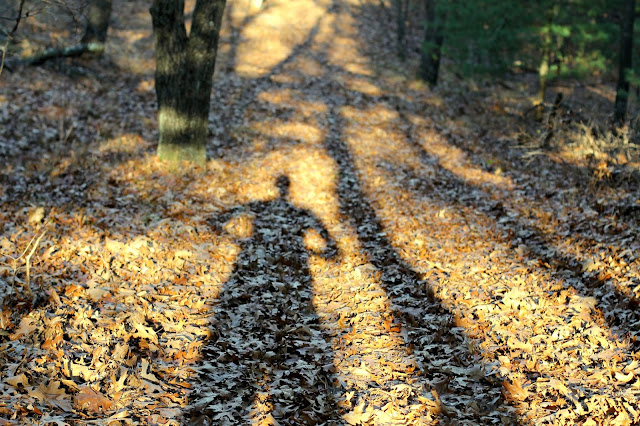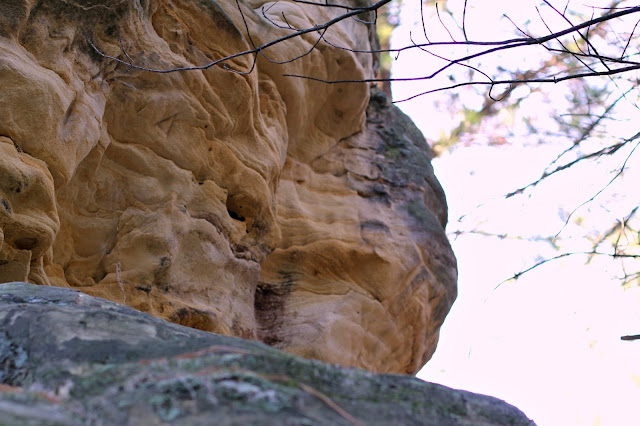 |
The first time I visited Ireland, I was staying with a family in a small village on the west coast, County Mayo, a short distance to the sea. I remember walking to the sea one day and noticing several colorful caravans parked along the road. I didn't think much of it at the time, but when I returned to the village, I was warned to be wary of "the gypsies" who inhabited the caravans. I don't remember the specific warning, but I remember the connotation being they were untrustworthy, possibly violent, and best left alone.
It seemed puzzling to me at the time, as I had nothing but the most positive associations with the stereotypes I associated with "gypsies." To be honest, I've long been envious of people who are more nomadic than stationary. The thought of taking my colorful caravan to the sea (with my entire extended family no less!) and parking on the side of a grassy road to take in the view for awhile seems... incredibly freeing.
Modern conventions of the word also added to my positive association. In Middle French they were bohemian, and in Spanish, Flamenco. Century Dictionary describes their qualities as "playful freedom or innocent roguishness of action or manner. As an adjective form, from the 1620's with a sense of unconventional; outdoor."
Bohemian! Nomadic! Unconventional! Playful! Outdoorsy! Sign me up!
Of course in retrospect, my ignorance of the history of the word "gypsy," and my ignorance of the history and struggles of the people to whom this derogatory word was ascribed, is both embarrassing and a sign of my grossly privileged life.
In case you're in the same comfy yet incredibly ignorant shoes that I was in that long ago day on the Irish coast, let me take you on a journey. Let us take our comfy shoes off as we stroll in the sand by the Irish seaside, and relearn our understanding of the word Gypsy and why it is considered so insulting and inappropriate to use as a casual substitute for "nomadic" today.
The etymology of the word Gypsy derived from a dialectal form of the word "Egyptian." Just as indigenous North Americans were mislabeled "Indians" by Christopher Columbus in his search for a passage to India, Gypsy was a misnomer for the Romani people who originated from the Punjab area of India and "migrated to Persia in the 11th century, and from there, to Europe by the 1400's." Europeans, noting their dark complexions and Persian customs, mistakenly believed they came from Egypt. "Today, many dwell in Italy, Spain and Eastern Europe, therefore the many different Romani groups are differentiated by their Persian/Iranian, Italian or Romanian customs." Long before Wifi-infused coffee houses and co-working spaces enabled digital nomads to take their work on the road, Romani people had to have portable jobs due to their largely nomadic nature. Portable work options included horse trading, entertainment/exhibitions including musicians, magic and dancing; metalsmith, blacksmith, telling fortunes and selling potions.
Several of these portable jobs were considered "witchcraft" by the religions of the day, along with their nomadic nature, made the Romani people targets for persecution, especially as the persecution of witches, Jews and other non-Christian cultures spread through Europe. "As such, the term "gypsy" came to be used as a derogatory term for the Romani." [Source: previous link above.] Gypsy is an "exonym," a name by which an ethnic group is referred to by outsiders but not from within the group itself.
How are those tender feet doing? Is the sand getting hot? Well, we're not quite there yet. So let's ignore the blisters and limp along a bit further.
Once the Roma people reached Romania in the 14th century, they were forced into slavery for over 500 years, and it is estimated over 80% of the Roma population in Europe was tortured [medical experimentations] then murdered during the Holocaust. "While Nazis murdered numerous groups for their beliefs or actions... they applied a consistent policy of extermination only against three groups: the handicapped, Jews and Roma."
Uffda.
The word "gypsy" is a slur, as hateful and hurtful as the N word.
"Even today, centuries later, the word is dangerous: 'It conjures up a romanticized image of poverty and sexualization, which doesn’t acknowledge that there is nothing romantic about being a victim of institutionalized racism. There is nothing romantic about the link between perceived uncontrollable sexuality and forced sterilization. There is nothing romantic about being a victim of domestic violence but afraid to speak out because law enforcement won’t believe you or it will further oppress your community. There is nothing romantic about lacking political power and representation, and being left out of both anti-racist and feminist politics.'” ~Amber Leventry I didn't know it before, but I know it now. So I'm not going to use it anymore, nor its cousin, "gypped," meaning to swindle, cheat or rob. And if you're ever on Pinterest, you'll see that this wildly popular social site does not allow the word or any combination of the word, either, labeling it as "hate speech."
So this post will be my last post as Gypsy Farmgirl. I may take up writing under a new name, we'll see. I will not however give up this domain, as there are many ignorant people who would love to set up a website under this name and profit off of it. (I've never sold a single thing under the Gypsy Farmgirl "brand," by the way.)
Goodbye, Gypsy Farmgirl.
Kana aven le tare ta atardeon pasa o gori le paiesko ando zaleno cimpo thaj ceri oce astardeolpe o traio.
When a Romani caravan arrives there, on the riverbank, in a green field and under the sky, nature itself comes alive.























